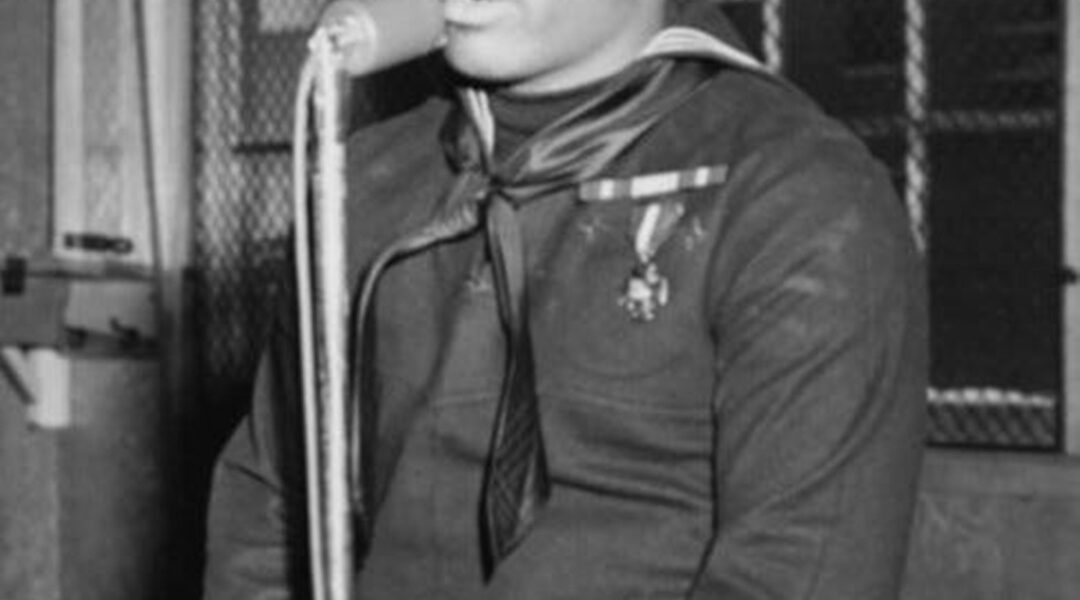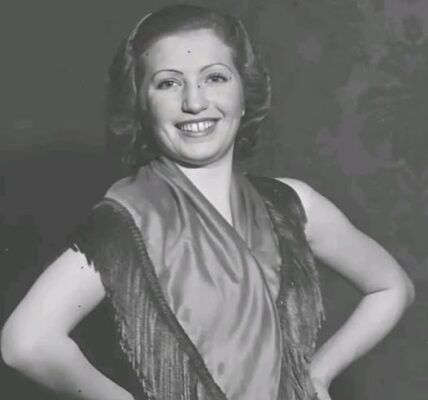On October 12, 1919, in the small town of Waco, Texas, a boy named Doris Miller was born into a world divided by color lines. Segregation shaped nearly every part of his childhood. Restaurants, schools, buses, even opportunity itself—each came with barriers that reminded him of where society thought he belonged. But within those limits, Doris carried something no one could take from him: strength, perseverance, and a quiet determination to rise.
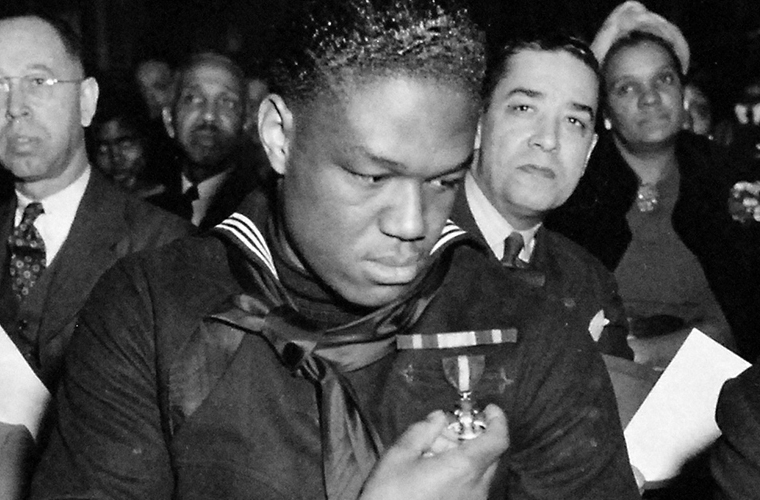
Tall and powerfully built, he stood out early for his athletic ability. On the fields and in the ring, he was respected not for the color of his skin, but for the undeniable force of his body and spirit. When he enlisted in the U.S. Navy in 1939, however, his strength was not honored with leadership or combat roles. Like most African Americans in uniform at the time, he was assigned to serve as a cook aboard the battleship USS West Virginia. He wore an apron instead of armor, carried trays instead of weapons. Yet fate had already chosen a different legacy for him.
That legacy would arrive on the morning of December 7, 1941.
The sun had barely risen over Pearl Harbor when the first Japanese planes tore through the sky. Bombs fell, torpedoes struck, and within minutes, the Pacific Fleet was in flames. Doris Miller heard the alarm and rushed to his assigned battle station—only to find it destroyed in the first wave of the attack. Smoke and fire filled the air, screams rose from every deck, and chaos threatened to consume the ship.
In that moment, Miller made a choice.
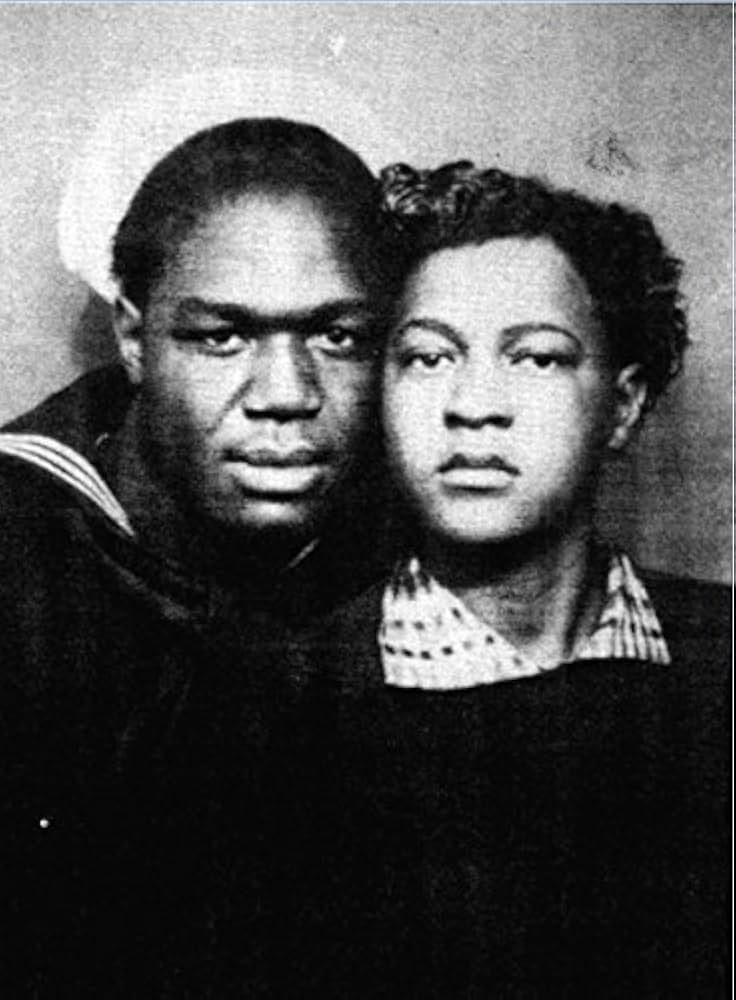
Though he had no formal training with weapons, he ran to an unmanned anti-aircraft gun. His massive hands gripped the weapon, his eyes focused on the enemy above, and he began to fire. The sky was filled with steel and fire, yet his aim was steady, his courage unshaken. Sailors later recalled watching in awe as Miller—a man the Navy had deemed fit only for kitchen duty—shot with precision and determination, downing Japanese planes in defense of his ship and his brothers-in-arms.
When his ammunition was spent, he didn’t stop. He turned to the wounded, lifting them with the same arms that had once carried heavy sacks of cotton and farm tools back in Texas. He pulled sailors from the smoke, dragging them to safety, refusing to rest even as fire raged around him. In those terrible hours, he became not just a cook, not just a sailor—but a hero.
News of his bravery spread quickly. For his actions, Doris Miller was awarded the Navy Cross, making him the first African American in history to receive that honor. In a time when segregation still haunted the nation, his recognition was more than a medal—it was a statement. It said that courage knew no color, and that heroism belonged to all who were willing to risk everything for others.
But Doris Miller’s story did not end at Pearl Harbor. He continued his service, assigned later to the escort carrier USS Liscome Bay. Two years after his moment of glory, on November 24, 1943, tragedy struck again. A Japanese torpedo slammed into the vessel, detonating the bomb magazine. Within minutes, the ship sank, taking more than 600 sailors with it. Among the lost was Doris Miller. He was just 24 years old.
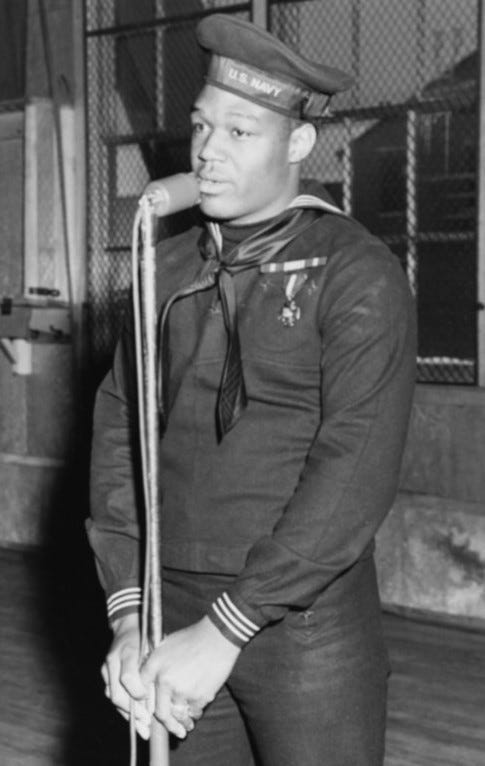
Though his life was cut short, his legacy only grew. In 1973, the Navy christened the USS Miller (FF-1091) in his honor—the first U.S. Navy ship ever named for an African American. Decades later, in 2020, the Navy announced that a new aircraft carrier would also bear his name: the USS Doris Miller. From a boy born into the struggles of segregation to a man whose name now sails across the seas, his story continues to inspire.
Doris Miller was more than a sailor. He was a symbol of courage in the face of fear, of dignity in the face of discrimination, of service in the face of sacrifice. His actions at Pearl Harbor remind us that true heroes are often found in unexpected places—sometimes in the galley of a ship, wearing an apron, until history calls them to stand.
His life ended in the waters of the Pacific, but his legacy endures in every person who chooses courage over fear, service over self, and love of country over personal safety. Doris Miller’s name will forever echo as proof that greatness is not given—it is chosen, in the moments that test us most.
